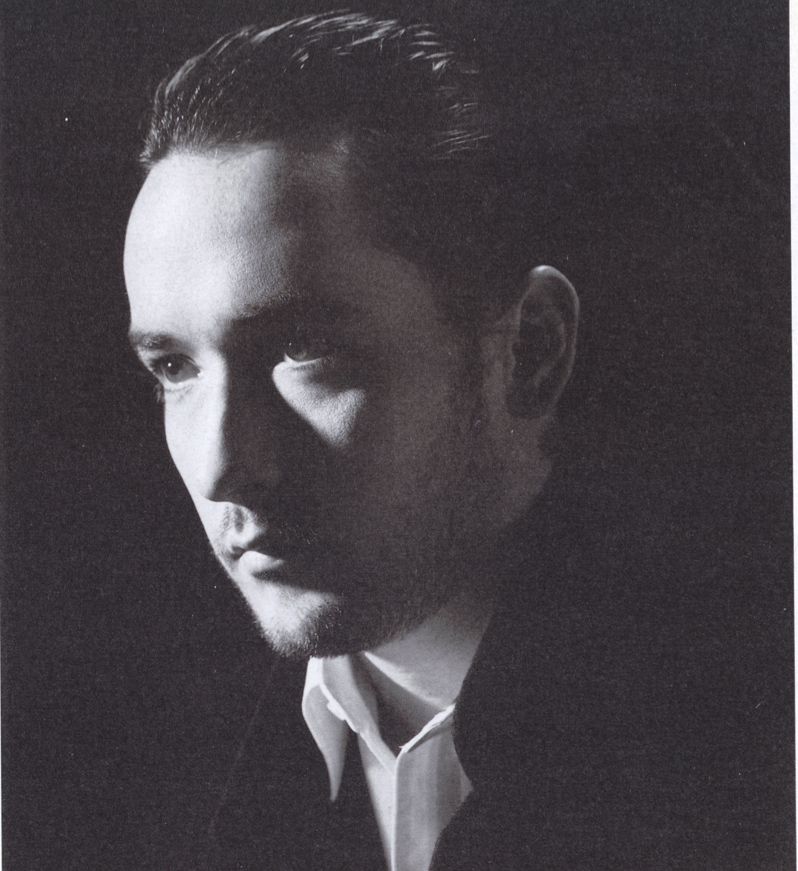New Again: John Cusack
“Every role you do is kind of a side of yourself. That’s why they give you the part,” John Cusack told Interview in 1990. It is an interesting statement for Cusack to make—the Chicago-born actor made a name for himself playing cute-as-a-button, mildly geeky, and hopelessly romantic teenagers, before moving onto darker roles. At the time of this particular interview, Cusack was promoting The Grifters, in which he plays a con man; not the most attractive role with which to associate your personality.
In Cusack’s latest role as a death-row inmate The Paperboy, out in cinemas this week, he remains as far removed from Lloyd Dobler as ever. Co-starring Nicole Kidman, Zac Efron, Matthew McConaughey, and David Oyelowo, the film was nominated for the prestigious Palme D’Or at Cannes in May. While we wait for the film to come out, we decided to revisit our 1990 interview with Cusack during his transitional period from teenage ingénue to hardened film veteran. —Emma Brown
Sincerely Yours, John Cusack
By Steven Goldman
Too old to be precocious, too young to be sagacious, John Cusack is a little of both. In Stephen Frears’ film The Grifters, based on the novel by the late Jim Thompson, he plays Roy Dillon, a small-time confidence man operating out of a Los Angeles hotel. His romantic interest is the hustler Myra Langtree (Annette Bening); competing for his affections is his estranged, gun-toting mother (Anjelica Huston). The sinew behind Roy Dillon is Cusack, whose trademark sincerity, evident from the roles that established his career, is put to ulterior device. Here the wholesome posture is designed to remove the loose change from your pocket, the spare bills from your till. He remains an innocent in Hades, a man attempting to maintain innumerable facades without losing sight of himself. With both feet firmly planted in the underworld, he reaches for the heavens, forever conscious of the likelihood that he’ll probably land on his ass. I suppose it’s the ingredient that makes an otherwise reprehensible character heroic.
STEVEN GOLDMAN: What exactly is a grifter?
JOHN CUSACK: A grifter is a con man, a short-con operator who gets anywhere from $200 to $1,500 a week. It’s dice, cards, credit cards—just money scams. The word is still used on the street today. When I was preparing for the role I met a lot of these guys. Frears dug them up somehow. We approached it like journalists and took tutorials with a couple of them.
GOLDMAN: Anyone in particular?
CUSACK: I don’t think it’s a good idea to mention anyone’s name.
GOLDMAN: Do you approve of their activities?
CUSACK: Well, let’s put it this way: I’d vote for Roy Dillon over George Bush in a minute.
GOLMAN: I read somewhere that you are “politically motivated.” What does that mean?
CUSACK: [laughs] I don’t know what to say. I read Noam Chomsky. I like some of Gore Vidal’s stuff. Um, I read The Nation.
GOLDMAN: Let’s get back to more personal things.
CUSACK: This is more interesting.
GOLDMAN: Nevertheless… How would you describe your relationship with your family?
CUSACK: Three sisters, a brother, a mother, and a father.
GOLDMAN: Would you say it’s a theatrical family?
CUSACK: God, you make us sound like the DeFrancos or the Van Pattens or something. You better back off on that.
GOLDMAN: I guess the relationship between you and Anjelica Huston in The Grifters will probably prove the most controversial aspect of the film.
CUSACK: I don’t want to give too much away, but as I’ve said, the script is only seemingly about con men. You simply don’t get roles, themes, or situations that are this juicy. I’m playing a guy who’s got a professional mask on. A personal mask too. He won’t let anybody inside. A total loner. Insider, he’s in turmoil. Outside, control. He’s got his world set up. He’s got his fake job. He’s got his apartment. And he’s got his grift. But he won’t address what he really is. Because underneath all of the different masks, there’s him.
GOLDMAN: Without getting embarrassingly Freudian—
CUSACK: Please, get embarrassingly Freudian.
GOLDMAN: Is there any part of yourself in this character?
CUSACK: Well, I think any actor can probably identify with being a professional liar. You don’t always look at yourself that way, but I know a lot of days I do. Without getting too Methody-actor-bullshitty, every role you do is kind of a side of yourself. That’s why they give you the part. I know that I can be manipulative and distant, and very much a loner in life.
THIS INTERVIEW ORIGINALLY APPEARED IN THE DECEMBER 1990 ISSUE OF INTERVIEW.
For more New Again, click here.







